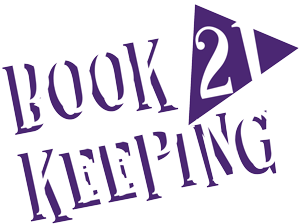Are you an entrepreneur or a business owner? Why this question? Because it matters in how you approach goal setting to achieve results.
There is so much overlap between the two terms that people often forget which is which. Many business owners consider themselves entrepreneurs simply because they are in the tech business (or because they think the term seems a lot cooler and less mundane than a “business owner”). Many business owners don’t care what they label themselves, despite possessing more entrepreneurial qualities than their peers.
I bring this up because understanding the distinction between the two and realizing which role you are really in (as opposed to the role you perceive yourself to be) can be the key to doing the most suitable goal setting for yourself and your business/venture.
The internet is littered with multiple definitions and differences between the two, and everyone seems to have their own idea about what makes an entrepreneur different from a business owner. One distinction and definition that I agree with is that business owners get set in their ways, while entrepreneurs are always, always trying to look for different ways and avenues to expand and grow. That doesn’t mean business owners don’t want growth or don’t expand. Quite the contrary, actually, but business owners mostly expand within their own domain, and their growth is usually linear.
Entrepreneurs, on the other hand, are more experimentative and willing to take risks in order to grow their business in unconventional ways and explore different possibilities. This is one of the reasons why you may find most hardworking, dedicated, and honest business owners relatively successful. And only a few business owners who can’t make money, despite giving it their all. Comparatively, even among the most dedicated and hardworking entrepreneurs, you may find just as many failures as you find successful entrepreneurs. The risk makes it difficult, but it’s also what sets apart entrepreneurs from business owners.
Although I owned a “traditional” business i.e. a real estate brokerage, I was (and still am) an entrepreneur. I took risks that a lot of brokerage or business owners would never dream of taking. I experienced failures that made me say “OUCH” but had more successes which substantially added wealth to my bottom line.
Entrepreneurs and Goal Setting
If you are an entrepreneur, you might already be familiar with how difficult goal setting can be, especially practical goal setting, which you can pursue and see tangible results. Many entrepreneurs tend to be laser-focused on setting and achieving a few limited goals, which is beneficial in some cases but can also get them blindsided from some practical problems that can bring their business down.
One example would be Enzo Ferrari, who drove his company’s finances down to the ground to keep Ferrari’s dominant racing position. The condition was so bad that Enzo had to bring in Fiat as a 50% partner to keep the company from going bankrupt.
Some goal-setting strategies that can help an entrepreneur are:
1. SMART Goal Setting
This is the most common strategy for setting a goal as an entrepreneur. SMART means Specific, Measureable, Achievable, Relevant, and Time-bound. These are the traits that a successful entrepreneur’s goals should have.
Specific: That seems the easiest, but it’s the most difficult to tackle down. Let’s say you set a goal to succeed against a giant competitor. This is a very vague goal. How do you want to grow? Do you want to beat their product in the market? How will you displace an already trusted brand? Do you have a better product, or you can bulldoze your competition with superior resources? How will you market: More positive marketing for your product or by showing off your competitive edge?
Eventually, one goal can be fractionated to a hundred small ones. Then you prune and focus only on some of them that will create the most impact. Vague goals will keep you, and your team confused.
Measurable: The feeling that you have when you have achieved your goal isn’t “measurable.” Sales numbers, increasing foot traffic, conversions, market demand, etc., are measurable. These are something that you, your team, your partners, and investors can understand. Tangible and measurable goals can help you get the full support of the people working with and for you because they would be able to see and understand what they will achieve by working on these goals.
Achievable: Never set impossible goals. It seems very dramatic, even heroic if you are expanding every effort on doing the impossible. But an entrepreneur should be pragmatic as well. You should understand the strength of your abilities, resources, team, and plan, and set goals that are achievable without burning out.
Relevant: Here, the 80/20 rule (the Pareto principle) can help. Focus on goals that are most relevant for achieving your goals, even if it means divesting yourself from something you love doing and engaging in something difficult or even distasteful.
Time-Bound: The adage, “Good things come to those who wait,” unfortunately no longer work (in most cases), not in today’s rapidly evolving business landscape. You have to set a timeline for your goals. You will most likely not meet those timelines, but you can modify or switch from the non-delivering goals when the time is up if you don’t see any results.
2. Be Ambitious but Practical
Ambition and a better appetite for risk are the hallmarks of a good entrepreneur, and it should reflect in your goals. But if your goals aren’t practical or pragmatic, you may end up exhausting a lot of resources to no avail. This is most important for entrepreneurs that are working with a team, other professionals, or partners.
If you are driven to succeed and willing to go the extra mile for your business as an entrepreneur, it doesn’t mean you get to expect the same drive, focus, and ambition from the people working with you. They may have very different professional goals from yours. Setting ambitious goals that require your team to give it much more than they are willing to (or capable of giving), just because you are doing it too, is an example of setting impractical goals. You will break your team’s spirit, and they will burn-out.
This goes for you too. If you are always going overboard with your goals, pushing yourself too hard, and not taking a pragmatic approach towards goal setting and achieving, it won’t end well. You will either become obsessive and callous or burn-out, neither of which is right for you and your business.
Being ambitious and pragmatic can lead you to find creative solutions and set achievable goals. If you know you don’t stand a chance against a well-established competitor (that’s being pragmatic). However, you still want to compete and win (which is ambitious). Therefore, you will set creative goals that can help you find a way around the problem instead of facing it head-on and wasting precious resources.
3. Long-Term vs. Short-Term Goals
As an entrepreneur, you should have goals and plans for the future. But you can’t ignore today, just because you are too focused on tomorrow. This is why you should always set two goals and understand how they relate to each other.
Think of your short term-goals as driving around in traffic, and your long-term goals as your destination. You should be focused on the road in front of you, or you’ll have an accident. But if you are focused only on navigating around the traffic and your destination isn’t in your mind at all, it will give you an illusion of moving forward, but you are not actually going anywhere.
Your long-term goals should always be on your mind. They can be your vision for the future shape of your organization or evolving alongside the market’s needs. Then your short-term goals (along with helping you navigate the usual aspects of a business) will naturally be extensions of your larger goals. This will help you keep moving in the right direction.
4. Growth vs. Financial growth
This is a bit difficult to tackle. Many entrepreneurs are creative and have the vision to create something different and unique. This means they focus less on the typical and boring (but absolutely) necessary aspects of running a business, like bookkeeping, budgeting, forecasting, cost-cutting, taxation, etc. They may spend more time, budget, and resources on research, finding the best talent, and experimenting.
A good entrepreneur knows how to keep the balance between the two. You can’t focus on your competitive edge and the more exciting side of your business, and not set any financial goals at all. They are both equally important, and if you can’t do it yourself, delegate it in-house or outsource it to someone that can take care of it.
If your competitive edge and organic growth are essential to keep the business moving forward, financial goals and development are crucial to sustaining the business when it’s moving.
5. From Goal to Planning and Execution
It sounds a bit contradictory to set goals for transitioning from “goals” to “planning,” but it should be a part of your overall goal setting and strategizing. Goals are very important to keep you and your team moving in the right direction, but if they are not supported by viable plans, they might just be “corporate ambitions.” As an entrepreneur, and more importantly, as a leader, it’s your job to lay out a plan that your team can follow, instead of thrusting some goals on them and expect them to fulfill those goals.
SMART and practical goals usually have enough thought-process behind them that they are relatively easier to plan for. The right goals turn into the right plans and are easier to execute.
Final Words
Not every goal-setting strategy will work for every entrepreneur. Everyone has their own mindset, temperament, and a unique approach to problem-solving. Therefore, your strategy for setting, discussing, and executing goals might be radically different from mine or another entrepreneur’s, but that doesn’t change the fundamental merits of a good, achievable goal. The more thought you put behind your goal and goal setting approach, the easier they will be for you and your team to pursue.
Do you have titanic-sized goals but no clue how to get them out of your head and into your life?
Want to know why “doing everything yourself” and micromanaging financial details in your head stops your ability to up-level your business and, therefore, your lifestyle?
When you try to save money by doing your own bookkeeping or delegating it to an employee, you’re squandering valuable time and energy that is better used growing your business.
By outsourcing your bookkeeping to Bookkeeping21, you learn the essential, must-know difference between business change and business growth – and why it matters to your overall goal-setting strategy.
Schedule a time to talk with me about how Bookkeeping21 can help you get on track to achieving those titanic-sized goals! Let’s Talk!

